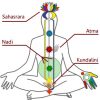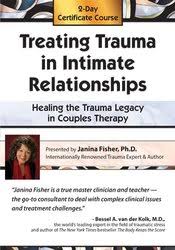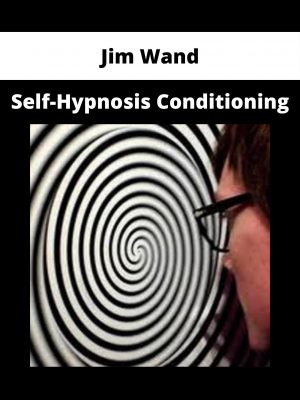Janina Fisher – 2-Day Certificate Course, Treating Trauma in Intimate Relationships
$300 Original price was: $300.$113Current price is: $113.
Shopping Instructions:
- DISCOUNT 15% : SHOP15
- Product Delivery: Within 1 – 12 hours after purchase.
Available for Pre-Order. This product will be available within a few days.
Janina Fisher – 2-Day Certificate Course, Treating Trauma in Intimate Relationships
Even the most experienced therapist can be challenged when it comes to couples who are always at each other’s throats or in constant crisis! What do these couples have in common? They come with an unacknowledged legacy of childhood trauma or neglect.
Early childhood trauma has lasting and dramatic effects on attachment formation and on the later capacity for intimacy and mutuality. Instead of experiencing relationship as a haven of safety, traumatized couples are driven by powerful wishes and fears of closeness.
The enemy is not each other but the trauma.
In this transformational certificate recording, learn from master clinician and trauma expert Janina Fisher, PhD. She will provide in-depth training on the impact of early neglect, attachment failure, and childhood trauma on couple relationships. Janina will help you master a variety of new approaches and methods that can transform your work with your most challenging couples. You’ll learn:
- How to address intense emotions and impulsive reactions that undermine the sense of safety and hope
- Strategies for working with couples in chronic conflict
- Mindfulness-based techniques for decreasing conflict and changing trauma-related patterns
- Sensorimotor psychotherapy techniques for getting to the emotions beyond words
- Externalizing techniques for increasing perspective
Through Janina’s expert insightful commentary, in-session videos of couples, case studies and examples, you’ll develop highly practical, evidence-based skills, and learn powerful assessment tools, case conceptualization techniques and proven clinical strategies that you can immediately apply in your practice.
- Discuss the neurobiological effects of traumatic experiences on individuals and couples as it relates to case conceptualization.
- Describe the role of animal defense survival responses in perpetuating relational conflict to inform clinical treatment interventions.
- Identify signs and symptoms of a client’s traumatic attachment in dyadic interaction.
- Provide psychoeducation about trauma and attachment to clients.
- Define implicit memory and articulate the role of implicit memory in evoking the sense of threat.
- Identify and verbalize repetitive patterns of action and reaction in the couple.
- Utilize practice of new patterns in session and evaluate their relative success in reducing couple conflict.
- Increase the ability of couples to observe their nonverbal communication and its impact on the relationship.
- Describe physical sensations that a client can feel when shame and resentment occur.
- Teach couples to articulate physical sensations arising in their interactions.
- Summarize sensorimotor psychotherapy practices that can be interfaced with psychotherapy practices to alleviate the volatility in couples.
- Identify interventions that can be used in-session to increase positive affect in the presence of the other.
- Provide homework for couples focused on practicing new patterns of action and reaction to improve engagement.
Day 1 Program
The Effects of Early Relational Trauma: Emotional, Physiological, Relational
- What is a ‘trauma’?
- Single events versus enduring conditions
- Remembering with our emotions and our bodies
- Procedural or conditioned learning
- Effects on brain and body
Habitually-Learned Survival Responses Recreate the Sense of Threat
- Triggers and Triggering: stay prepared for danger
- Animal defense survival responses in human beings
- Effects of traumatic adaptation on relationships
The Danger of Closeness and the Threat of Distance
- How trauma-related patterns affect the capacity for intimacy
- Body and emotional memories re-create the sense of danger
- Chronic conflict as activation of animal defenses
- Why couples cannot process conflicts or tolerate empathy
Strategies for Working with Couples in Chronic Conflict
- Create neutral space in therapy sessions
- Provide psychoeducation about trauma
- Inhibit destructive patterns in the therapy session
- Practice of new patterns as ‘experiments’
Mindfulness-Based Techniques for Decreasing Conflict and Changing Trauma-Related Patterns
- Mindfulness-based awareness of the ‘play-by-play’
- Notice the effects of their actions on partner reactions
- Observe with curiosity: “Am I getting what I want this way? Is this working?”
Would you like to receive Janina Fisher – 2-Day Certificate Course, Treating Trauma in Intimate Relationships ?
Day 2 Program
Shift from “Processing” Issues to Changing Patterns of Response
- A repair model for psychotherapy in place of an insight model
- The therapist as referee rather than empathic listener
- Limits and boundaries on conflict in the therapy
- Limitations of the research and potential risks
Sensorimotor Psychotherapy Techniques for Getting to the Emotions Beyond Words
- Brief introduction to sensorimotor psychotherapy
- Teach couples somatic awareness and dialogue techniques
- Work with the body to decrease tension and ‘charge’ in the relationship
- Use movement and gesture as vehicles for communication
Externalizing Techniques for Increasing Perspective
- Externalizing techniques deter conflictual verbal exchange
- Diagram patterns of conflict
- Use diagramming to help couples take responsibility for their actions and reactions
- Connect to the wounded child in each partner
- Acknowledge the role of child selves in their conflicts
- Sooth and protect the hurt child self
- Increase self-compassion and compassion toward partner
Related products
NLP & Hypnosis
NLP & Hypnosis
NLP & Hypnosis
NLP & Hypnosis
NLP & Hypnosis
NLP & Hypnosis
Joseph Cohen – The SelfHacked Secrets To Understanding Why You Are Sick And How To Get Well
NLP & Hypnosis












